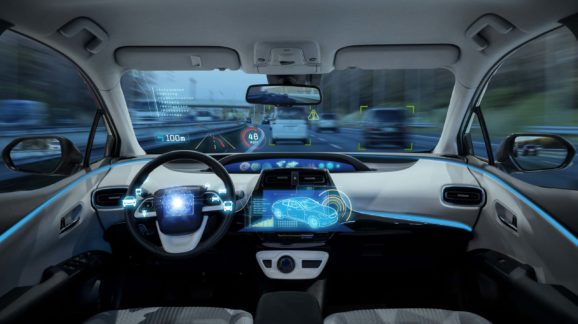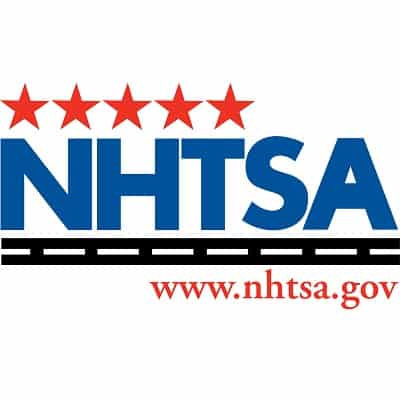Cathy Chase’s AV START Act Flip-Flop

 Cathy Chase, now the president of the lobby group Advocates for Highway and Auto Safety, was previously a strong supporter of the Senate’s bipartisan AV START Act (S. 1885)—before she was against it. The AV START Act is companion legislation to the House’s SELF DRIVE Act (H.R. 3388), which unanimously passed the House by voice vote in September 2017. These bills, if enacted, would create the first national highly automated vehicle regulatory framework, something badly needed to combat a growing patchwork of poorly written state laws.
Cathy Chase, now the president of the lobby group Advocates for Highway and Auto Safety, was previously a strong supporter of the Senate’s bipartisan AV START Act (S. 1885)—before she was against it. The AV START Act is companion legislation to the House’s SELF DRIVE Act (H.R. 3388), which unanimously passed the House by voice vote in September 2017. These bills, if enacted, would create the first national highly automated vehicle regulatory framework, something badly needed to combat a growing patchwork of poorly written state laws.
When the AV START Act was unanimously passed by the Commerce Committee on October 4, 2017, Chase, then a vice president for the Advocates, released the following statement praising the bill (permanently archived here in case it is memory-holed):
Today’s action and the adoption of several pro-safety and pro-consumer changes to S. 1885 are a welcomed development for Advocates and other consumer and safety groups with whom we have worked to improve the legislation. Protecting public safety should be the top priority and not protecting industry investments in this new technology. We are pleased that the bill now moving to the full Senate will not only be known as the AV START Act but it is also an AV SAFETY Act.
Fast forward to November 28, 2018, and Chase is singing a very different tune in a letter she wrote to senators:
Nonetheless, legislation with significant safety flaws and omissions, the AV START Act, is being raced through the Senate under the guise of advancing safety, despite not even requiring autonomous vehicles (AVs) to meet all of today’s safety standards.
“Raced through the Senate” is an odd way to describe a bill that has been awaiting a floor vote for over a year, but I digress. Let’s next compare some of the specific demands of Chase’s November 2018 letter objecting to the AV START Act with the improvements the Advocates praised following committee mark-up in October 2017.
- Temporary exemptions.
- October 2017 Advocates, listed as a “significant improvement”: “a reduction in the number of exemptions from existing motor vehicle safety standards for auto manufacturers”; “a requirement for the U.S. Department of Transportation to review and evaluate the safety performance of vehicles with exemptions before allowing even larger numbers on the road.”
- November 2018 Advocates, listed as a demand for additional improvement: “Limit the size and scope of exemptions for vehicles that can be sold without meeting crucial federal government safety standards.”
- Public dissemination of information related to vehicle capabilities and limitations.
- October 2017 Advocates, listed as a “significant improvement”: “requiring a federal rule for consumer information on the capabilities and limitations of the AV at the point of sale for consumers.”
- November 2018 Advocates, listed as a demand for additional improvement: “Provide the public, NHTSA, and NTSB with adequate information and data as to the limitations, capabilities, and real-world performance of driverless cars.”
- Cybersecurity.
- October 2017 Advocates, listed as a “significant improvement”: “cybersecurity safeguards.”
- November 2018 Advocates, listed as a demand for additional improvement: “issue minimum standards for driverless cars, including securing driverless systems from hacking.”
You can’t blame senators for being confused about what Cathy Chase and the Advocates for Highway and Auto Safety want. Cathy Chase apparently doesn’t know either, or at least is unable to articulate her concerns in a consistent manner.
So, what has changed? With respect to the bill, nothing. It has not been amended since it cleared committee mark-up. Perhaps Chase now knows something she didn’t when she heaped praise on the AV START Act as the “AV SAFETY Act.” If that’s the case, I’d be interested in hearing about it.
But the only difference I can tell is the trial lawyers have been seeking a rifle-shot prohibition on private arbitration in future highly automated vehicle customer contracts. The bills are silent on arbitration, not supportive of it, but the plaintiff’s bar lost big at the Supreme Court in May 2018 and they seem to be seeking some sort of consolation prize from the Senate. For whatever reason, they have latched onto the AV START Act as that potential participation trophy, and self-styled safety advocates appear to be providing cover.
To be sure, Chase isn’t the only AV START flip-flopper. Joan Claybrook, President Carter’s administrator of the National Highway Traffic Safety Administration, also turned from AV START Act supporter to opponent over the same few months. In October 2017, Claybrook said the AV START Act is “an excellent example” of senators “coming together and working in a bipartisan way to advance important highway and auto safety protections.” In August 2018, Claybrook wrote in USA Today that passage of the AV START Act would turn all American road users into “potential ‘crash test dummies’ in [a] dangerous experiment.”
Claybrook’s waffling shouldn’t be too surprising. As NHTSA administrator, she led a cover-up on airbag safety risks to small children and then later denied any responsibility. Fortunately, video exists of Claybrook’s flip-flop on risky airbags she supported as NHTSA administrator against the warnings of her own agency scientists and the auto industry:
Senators would be wise to ignore advocates like Chase and Claybrook until they can demonstrate consistency, and the Senate should finally pass the AV START Act. For more on why complaints against the AV START Act are baseless, see here, here, and here.